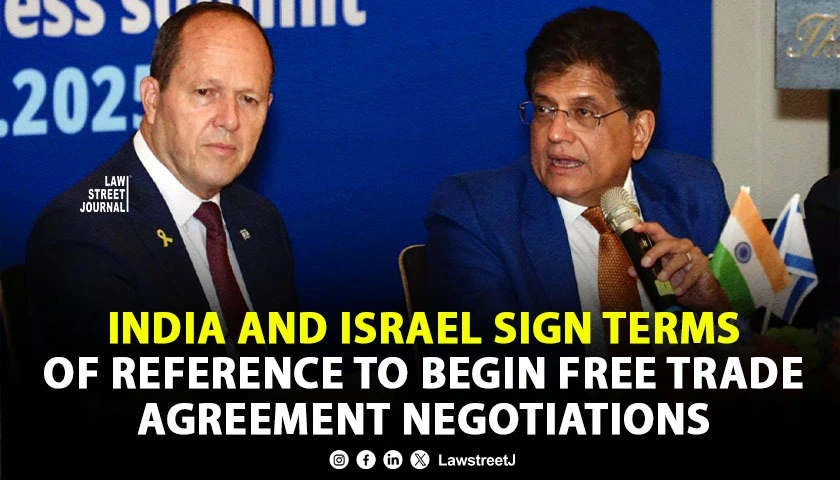New Delhi: Commerce and Industry Minister Piyush Goyal began a three-day visit to Israel on November 20, 2025, in an effort to push forward negotiations on the long-pending India–Israel Free Trade Agreement (FTA). His trip, scheduled to conclude on November 22, comes at a time when both countries are looking to deepen cooperation across trade, technology, agriculture, and defence.
Delegation Agenda and Key Engagements
Goyal is accompanied by a 60-member business delegation representing major industry bodies such as CII, FICCI, ASSOCHAM, and Start-up India. The invitation for the visit was extended by Israel’s Minister of Economy and Industry, Nir Barkat. The delegation includes representatives from Mahindra, Amul, Asian Paints, and firms working in agritech, pharmaceuticals, construction, e-commerce, and defence-related sectors.
During the visit, they will participate in the India–Israel Business Forum and the fourth CEOs’ Forum, both designed to enhance direct engagement between companies from the two countries. The Commerce Ministry has stated that discussions will revolve around expanding cooperation in agriculture, water technology, defence, and digital innovation. Meetings with senior Israeli officials are also planned to review investment opportunities and assess the status of ongoing FTA negotiations.
Talks on the agreement began in May 2010 and have gone through eight rounds. After a period of inactivity, negotiations resumed in October 2021. The proposed FTA aims to lower tariffs, improve market access, and streamline trade procedures.
India’s exports to Israel have seen notable fluctuations. During FY 2024–25, exports dropped to $2.14 billion from $4.52 billion the year before, marking a 52% decline. Major export items include diamonds, machinery, chemicals, and agricultural products. The FTA is expected to address tariff barriers and regulatory challenges contributing to this volatility.
If finalised, the FTA would operate under India’s Foreign Trade (Development and Regulation) Act, 1992, and Israel’s Free Trade Agreements Law, 1992. Since both countries are WTO members, the pact must comply with WTO rules on transparency, non-discrimination, and dispute settlement.
Negotiators are also examining chapters on intellectual property rights, investment procedures, and digital trade. Harmonising standards and finalising mechanisms for resolving trade-related disputes will be key components of the legal framework.
Strategic Importance Beyond Trade
Although the FTA is central to the visit, India and Israel are also focusing on broader areas of cooperation. Defence ties between the two countries have remained strong, with Israel continuing to be one of India’s major defence suppliers. A formal trade agreement could streamline defence procurement and support joint manufacturing.
Agriculture has also emerged as a major pillar of cooperation. India and Israel have established multiple Centres of Excellence across Indian states, focusing on precision farming and water-efficient agricultural techniques. Several ongoing projects involve drip irrigation, protected cultivation, and high-yield crop varieties.
The visit aligns with India’s larger trade strategy under its Foreign Trade Policy (2023–28), which prioritises formal trade agreements with technologically advanced economies. Israel stands to benefit from greater access to India’s domestic market and opportunities in renewable energy, healthcare technology, and cybersecurity.
Once negotiators conclude the draft text, the agreement will move through official approval channels in both countries. In India, it must be cleared by the Union Cabinet and later tabled in Parliament. Israel would follow its own cabinet and legislative processes. After approval, the agreement will be notified in the official gazettes of both nations, and joint committees will be set up to monitor implementation and address emerging issues.
Piyush Goyal’s visit signals a renewed effort to bring the India–Israel FTA closer to completion. With eight rounds of negotiations already held and high-level engagement underway, both governments appear keen to accelerate the process. The visit also highlights the broader economic and strategic links between the two countries, spanning trade, technology, agriculture, and defence cooperation.










